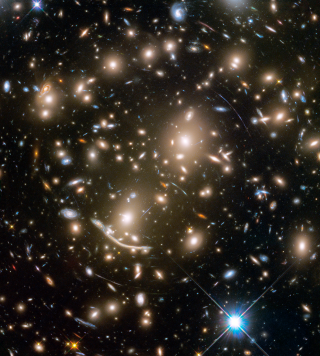Dalla Bontà, E.; Davies, R. L.; Houghton, R. C. W.; D'Eugenio, F.; Méndez-Abreu, J.
Bibliographical reference
Monthly Notices of the Royal Astronomical Society, Volume 474, Issue 1, p.339-387
Advertised on:
2
2018
Citations
9
Refereed citations
8
Description
We present a photometric analysis of 65 galaxies in the rich cluster
Abell 1689 at z = 0.183, using the Hubble Space Telescope Advanced
Camera for Surveys archive images in the rest-frame V band. We perform
two-dimensional multicomponent photometric decomposition of each galaxy
adopting different models of the surface-brightness distribution. We
present an accurate morphological classification for each of the sample
galaxies. For 50 early-type galaxies, we fit both a de Vaucouleurs law
and a Sérsic law; S0s are modelled by also including a disc
component described by an exponential law. Bars of SB0s are described by
the profile of a Ferrers ellipsoid. For the 15 spirals, we model a
Sérsic bulge, exponential disc and, when required, a Ferrers bar
component. We derive the Fundamental Plane (FP) by fitting 40 early-type
galaxies in the sample, using different surface-brightness
distributions. We find that the tightest plane is that derived by
Sérsic bulges. We find that bulges of spirals lie on the same
relation. The FP is better defined by the bulges alone rather than the
entire galaxies. Comparison with local samples shows both an offset and
rotation in the FP of Abell 1689.
Related projects

Galaxy Evolution in Clusters of Galaxies
Galaxies in the universe can be located in different environments, some of them are isolated or in low density regions and they are usually called field galaxies. The others can be located in galaxy associations, going from loose groups to clusters or even superclusters of galaxies. One of the foremost challenges of the modern Astrophysics is to
Jairo
Méndez Abreu